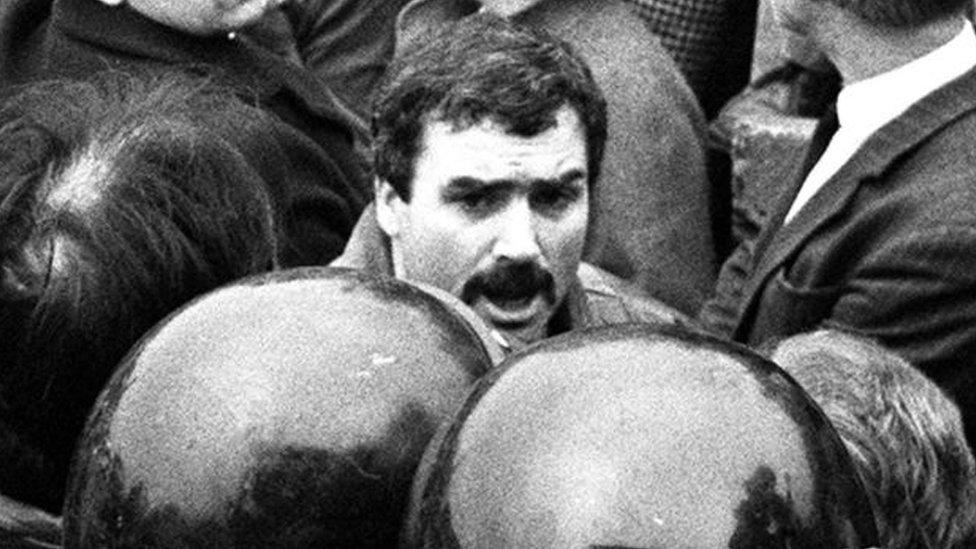Why did the IRA not kill Stakeknife?
- Published

Belfast man Fred Scappaticci denied being Stakeknife, an Army agent within the IRA
The Provisional IRA is estimated to have killed more than 70 people it accused of acting as informers.
'Touting' was seen as the ultimate betrayal - as Martin McGuinness once stated: "Irish republican people believe it is quite acceptable for the IRA to take the life of anyone in the pay of the British crown."
And yet Freddie Scappaticci was spared after suspicion fell on him.
Stood down, but neither questioned nor executed.
When he was publicly unmasked in newspapers as Stakeknife about 13 years later, the IRA and Sinn Féin went along with his denial.
"He was too big an embarrassment to kill," said Brian Rowan, a former BBC security editor.
The journalist reported on the brief press conference in 2003 at which Mr Scappaticci rejected reports that he was Stakeknife.
"Killing him was to accept that the IRA's Internal Security Unit (ISU) had been completely compromised by the British.
"My suspicion also is had the IRA shot him, it would have been the end of major political negotiations which Sinn Féin were in the middle of to put Stormont back together."
'Outer fringes of the IRA'
For most of his time in the IRA, 'Scap' was a senior member of the ISU.
Its principal role was to root out agents working for the police and Army.
In 1990, following a police raid on a house during the interrogation of a suspected informer, he and its other members were replaced because the IRA believed the unit had been infiltrated.
Within the following few years, he was on the outer fringes of the IRA and of little or no further use to his handlers.
When 'outed' in 2003, he remained in west Belfast and brazened things out.
He did not leave Northern Ireland and go into hiding in England until a year later, when a recording surfaced from 1993 of him speaking secretly to journalists about senior republicans.
The pretence could not be kept up any longer.
Former IRA prisoner Anthony McIntyre has previously accused the organisation of a cover-up.
Interviewed for Richard O'Rawe's recent book 'Stakeknife's Dirty War', he remarked: "There was a self-interest in the IRA in not exposing him, in not shooting him, because it would have visited an awful lot of questions on the IRA and the leadership that had him in place for so long."